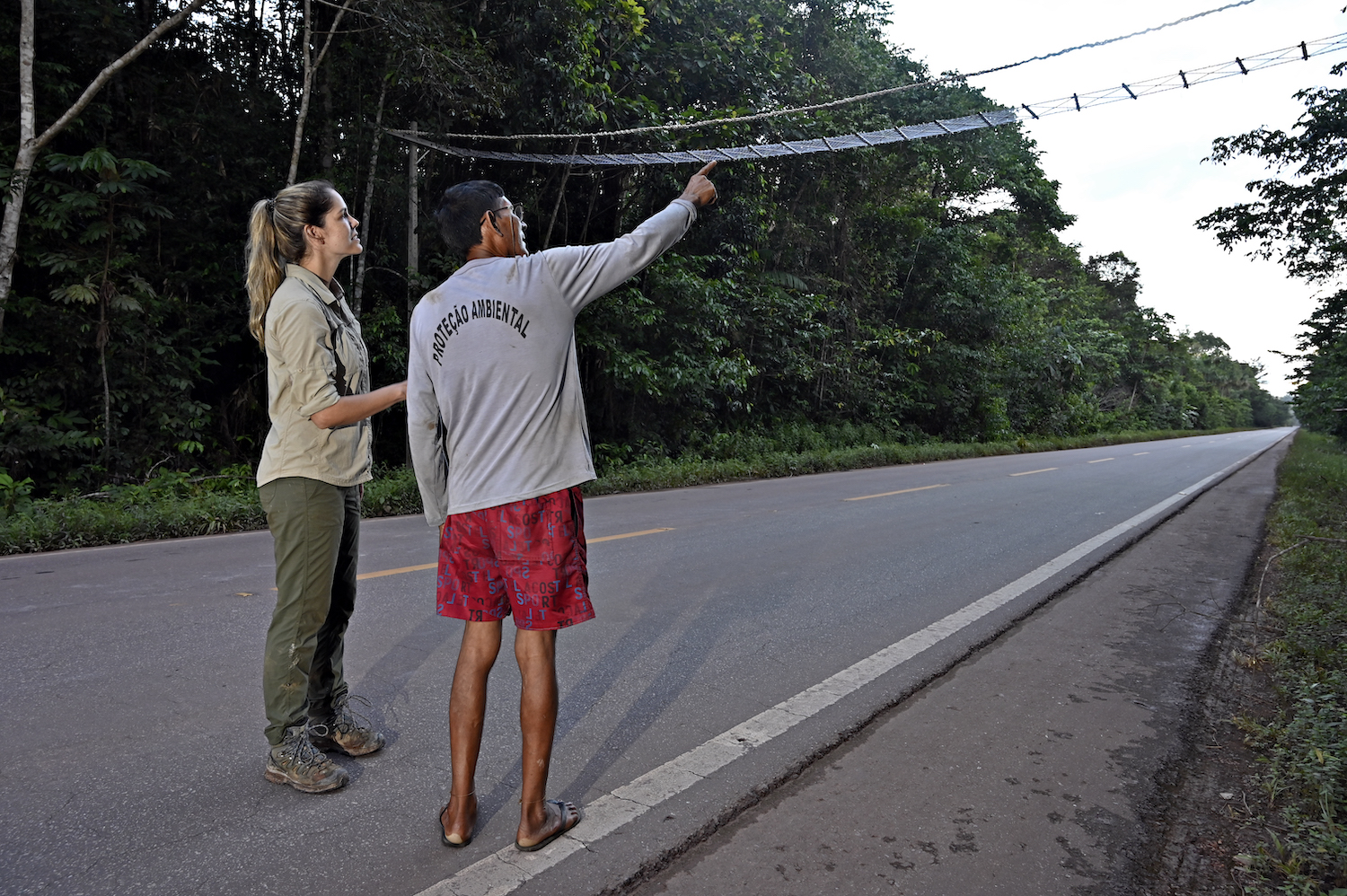- |
In Brazil there is a mission that is the result of collaboration between researchers and indigenous populations and which aims to protect Amazonian primates: this is the Reconecta Project, which was conceived by the biologist and winner of the 2024 Whitley Prize Fernanda Ambra and involves the construction of "bridges" aimed at connecting the crowns of the trees located on both sides of the road that runs through the states of Amazonas and Roraima, thus allowing the fauna local area to cross avoiding the risk of investment, which is in fact one of the main causes of death for primates in the region.Working on the project is «a wealth of knowledge and a wonderful learning experience» according to the biologist, who underlined the importance of involving traditional communities as «they know exactly what is needed to protect the forests».
Brazil is facing an environmental dilemma that is anything but indifferent in that it has one of the largest road networks in the world and, at the same time, approximately 40% of the primate species living in the area would be a risk of extinction.Another alarming fact concerns the main causes of death:according to one scientific review the number of medium-large mammals killed in Brazilian streets every year can reach almost 9 million units.Also for these reasons Fernanda Ambra – biologist and professional road ecologist who dedicated her doctoral thesis to this topic – created the Reconecta Project:an initiative that involves the construction of "bridges" aimed at allowing safer crossing for local fauna.«I swore to myself that I would no longer study only the impacts caused by roads and traffic;rather, I wanted to save as many animals as possible by implementing mitigation measures,” commented the scientist.
When he started working on the mission – explains Amber – three areas requiring bridges had been located but the search was hampered by the fact that it was almost impossible to find roads with large fragments of forest on both sides.Continuing to investigate, however, his team then found a 125 kilometer stretch of the BR-174 road, which crosses the region inhabited by the indigenous people. Waimiri-Atroari, a Brazilian ethnic group made up of thousands of individuals which suffered serious violence between the 1960s and 1980s.After having agreed on the most suitable places and having created the artificial bridges with the help of the indigenous people, the Reconecta Project installed 30 of them in 2022, also equipping them with two "photo traps" used to check which animals decide to use it and which ones arrive in proximity of the construction but they give up using it for crossing.Only in the first 10 months – explains the biologist – Eight different species have been documented, which include the yellow-handed tamarin (Saguinus midas) or “kixiri” and possums (Didelphis Linnaeus).This implementation also showed that local arborists tend to prefer a certain bridge model that involves a single thick rope woven onto a steel cable.

Ambra then added that the requirements for the mission were not limited to indigenous wisdom and biological science, but extended to other skills that make Reconecta a multidisciplinary project:“We had to learn a lot about civil engineering, materials engineering, architecture and road regulations to finally create a solution suitable for that environment, compliant with all legislation and, above all, replicable,” he added.These efforts have also been recognized by the Whitley Fund for Nature – a nature conservation charity founded in 1993 that raises funds and awards grants – who included Fernanda Ambra among the six winners of the Whitley Awards of the 2024 edition, considered “the Oscar of nature conservation”.However, both for the scientist and for the indigenous people the work is not yet finished and for this reason they explained that Reconecta will also be tested in other states and abroad:«We must continue this project;without bridges many animals die.It wasn't like that;there were many animals.But with the bridges, we see spider monkeys and robust capuchin monkeys crossing from one side of the forest to the other,” said Waimiri-Atroari leader Mario Paruwe.
[by Roberto Demaio]
